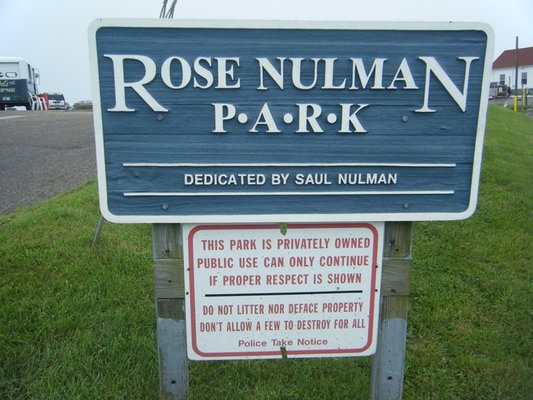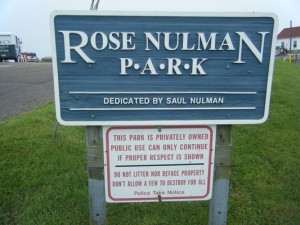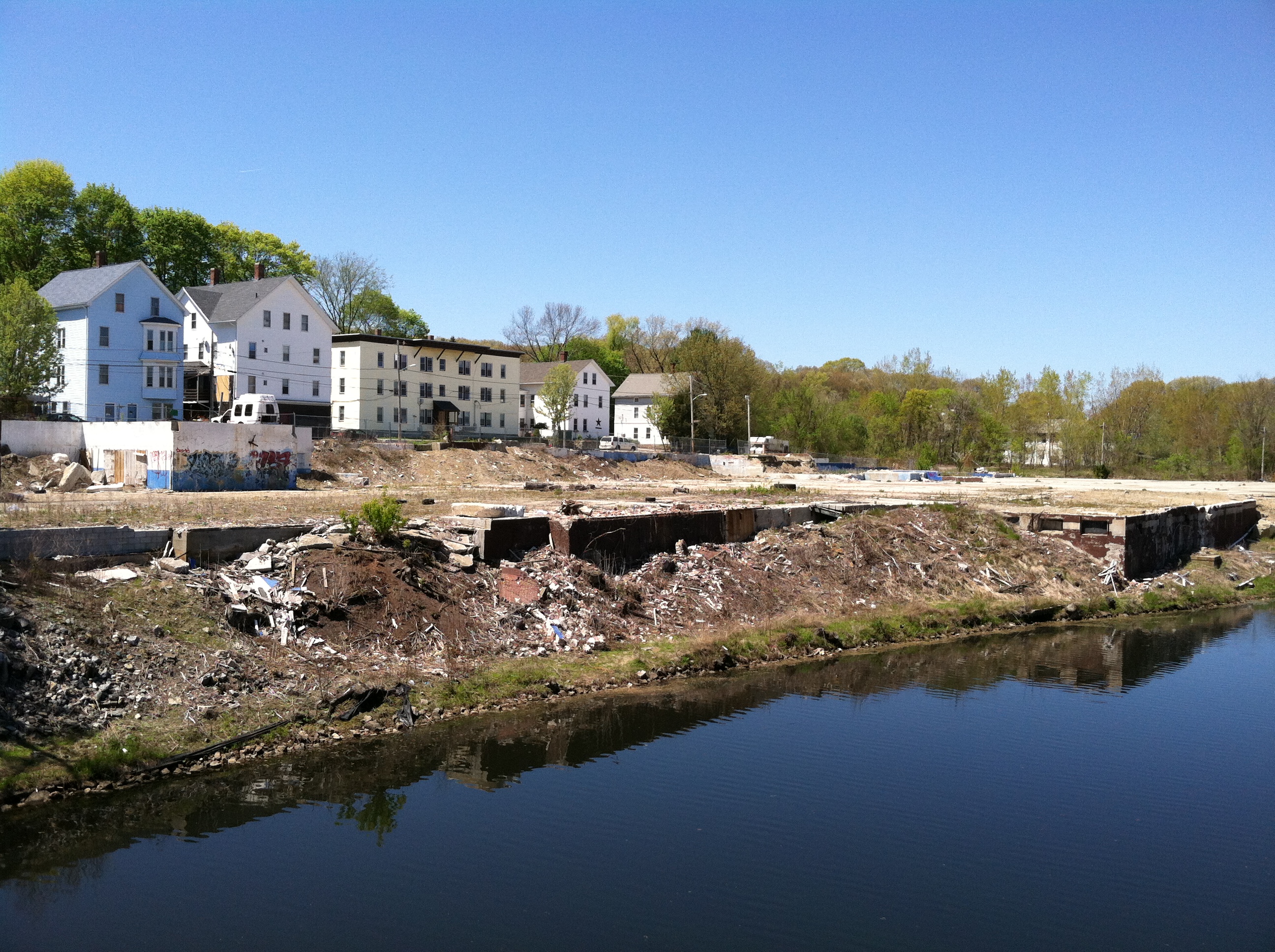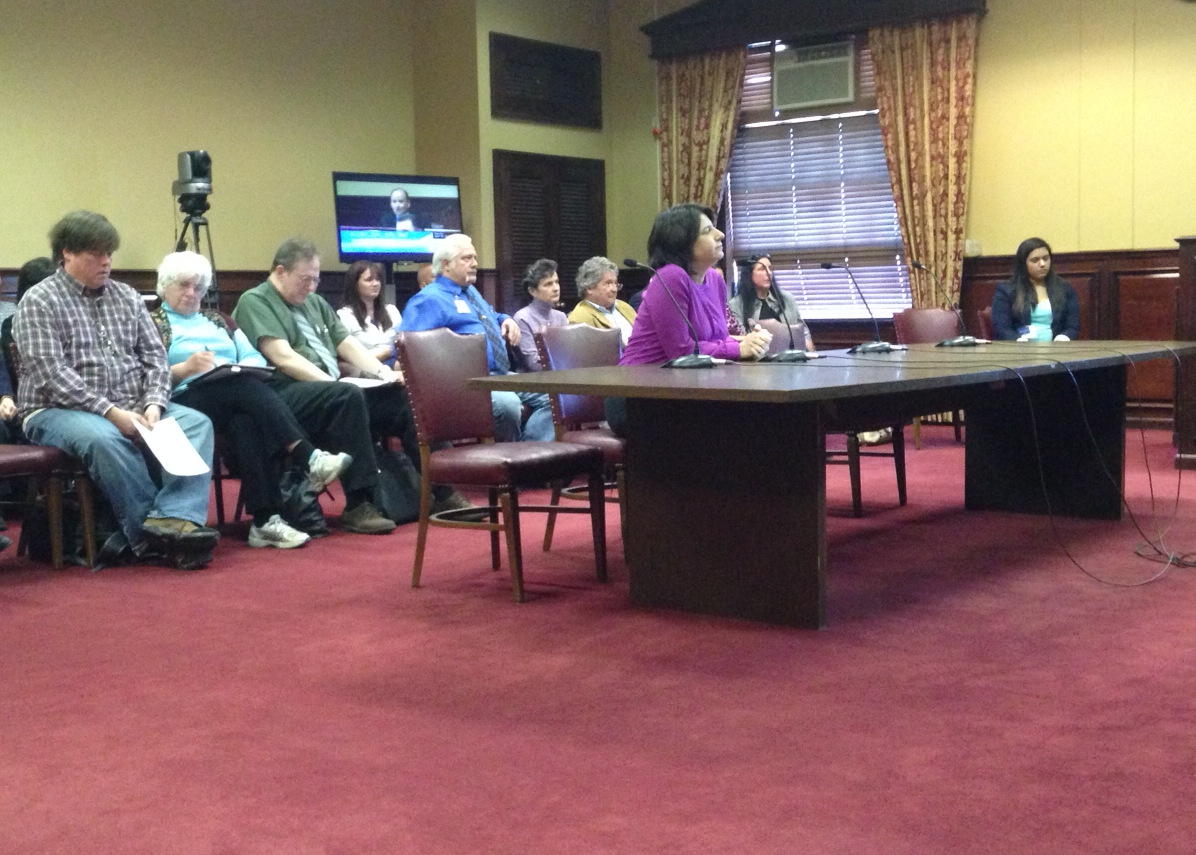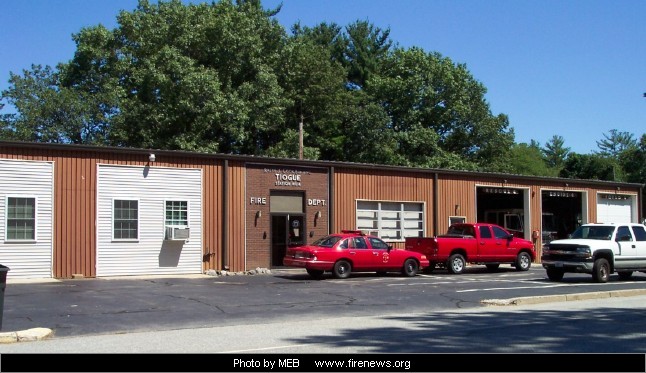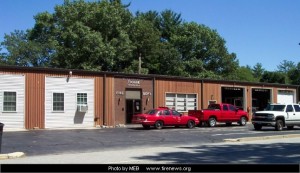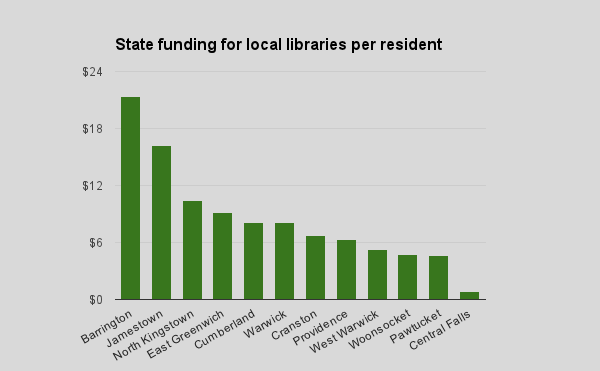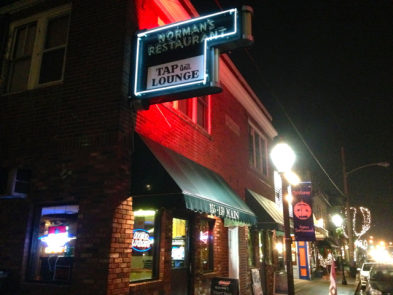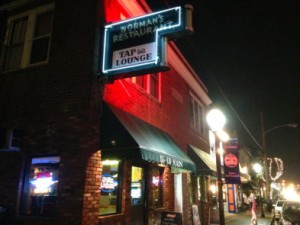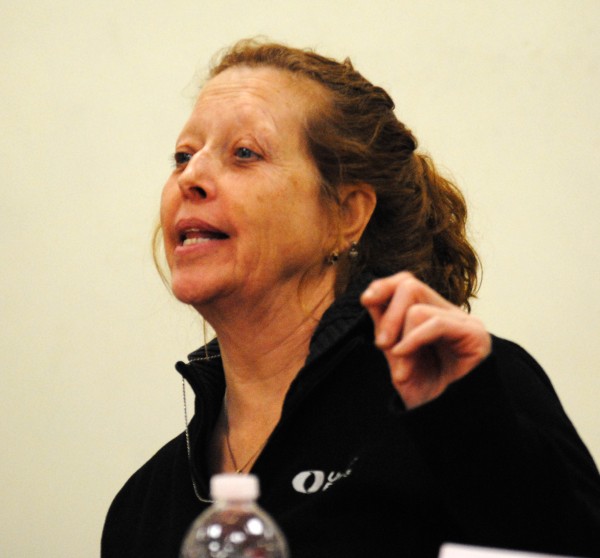
Though RI’s Sheldon Whitehouse is the foremost climate champion in the US Senate, many environmentalists find themselves at odds with the Senator’s position on the Spectra Pipeline expansion in Burrillville, since he sees fracked natural gas as a potential bridge between today’s dirty fossil fuels and the clean renewable energy sources of the future.
Locally, FANG (Fighting Against Natural Gas) has engaged in non-violent direct action and civil disobedience when members occupied Whitehouse’s offices in December and Senator Jack Reed’s offices in October.
One of those arrested in Senator Reed’s office was Sherrie Andre, who was part of a panel, Energy in Rhode Island: Reframing the Debate, organized by RISCC (Rhode Island Student Climate Coalition, pronounced “risk”) at Knight Memorial Library in Providence. Andre was joined by Kathy Martley and Amanda, representing BASE (Burrillville Against Spectra Expansion) and Kat Burnham, representing People’s Power & Light.

Andre has come to the climate struggle from a background in domestic violence prevention, noting that “areas where gas is fracked see a 300% increase in domestic violence.” When an oil company comes to town and begins fracking operations, the town booms in size, bringing itinerant short term workers pulling long shifts and a host of social problems including increased substance use and car accidents. Small communities struggle with these costs.
“How much does cleaning up a meth lab cost?” asked Andre, noting that most communities have never had to deal with such an issue. Communities are forced to invest in emergency services, such as additional full time EMTs, which they can ill afford.

Kathy Martley helped to form BASE in part because the Spectra Pipeline maintains a compressor station virtually in her backyard. The pipeline has been in continuous use since 1952, says Martley, and runs on a 22 horsepower compressor. The noise from the compressor ebbs and flows, and is made bearable only by a copse of trees that separates Martley’s home from the compressor station. Plans for expansion include adding a 16,000 horsepower compressor, and eliminating all the trees between the compressor station and her home.
Martley is also concerned about the chemicals the station is using. Fracked gas is dirtier, she says, and requires an additional 25 chemical additives to make it run smoothly through the pipeline. Many of these chemicals are industrial secrets, meaning there is no information available to the public as to what they are. In the event of a leak, Martley and her family and neighbors may be exposed to an unknown toxic brew.

Burrillville is well known for its farming, fishing and camping. The pipeline doesn’t run far from Wallum Lake, which crosses the border between Rhode island and Massachusetts. An accident would ruin this pristine natural habitat.
Martley was blunt about the environmental impacts, saying, “Burrillville is Rhode Island’s sacrifice zone.”
In answer to a question about potential jobs being lost if the Spectra Pipeline expansion is stopped, Martley pointed out that right now the plant runs with two full time employees working nine to five. The rest of the time the plant is run by computers. The expansion will raise the number of employes to seven, and these will not be local jobs in Martley’s opinion, but outsourced.
This dovetailed nicely into a short discussion of the necessity for a “just transition.” A smart transition to green energy and energy independence for Rhode Island will include trades unions in the discussion. We need policies that create jobs and opportunities for Rhode Islanders, not wealth for multinational corporations.
“We want good, sustainable jobs,” said Andre.

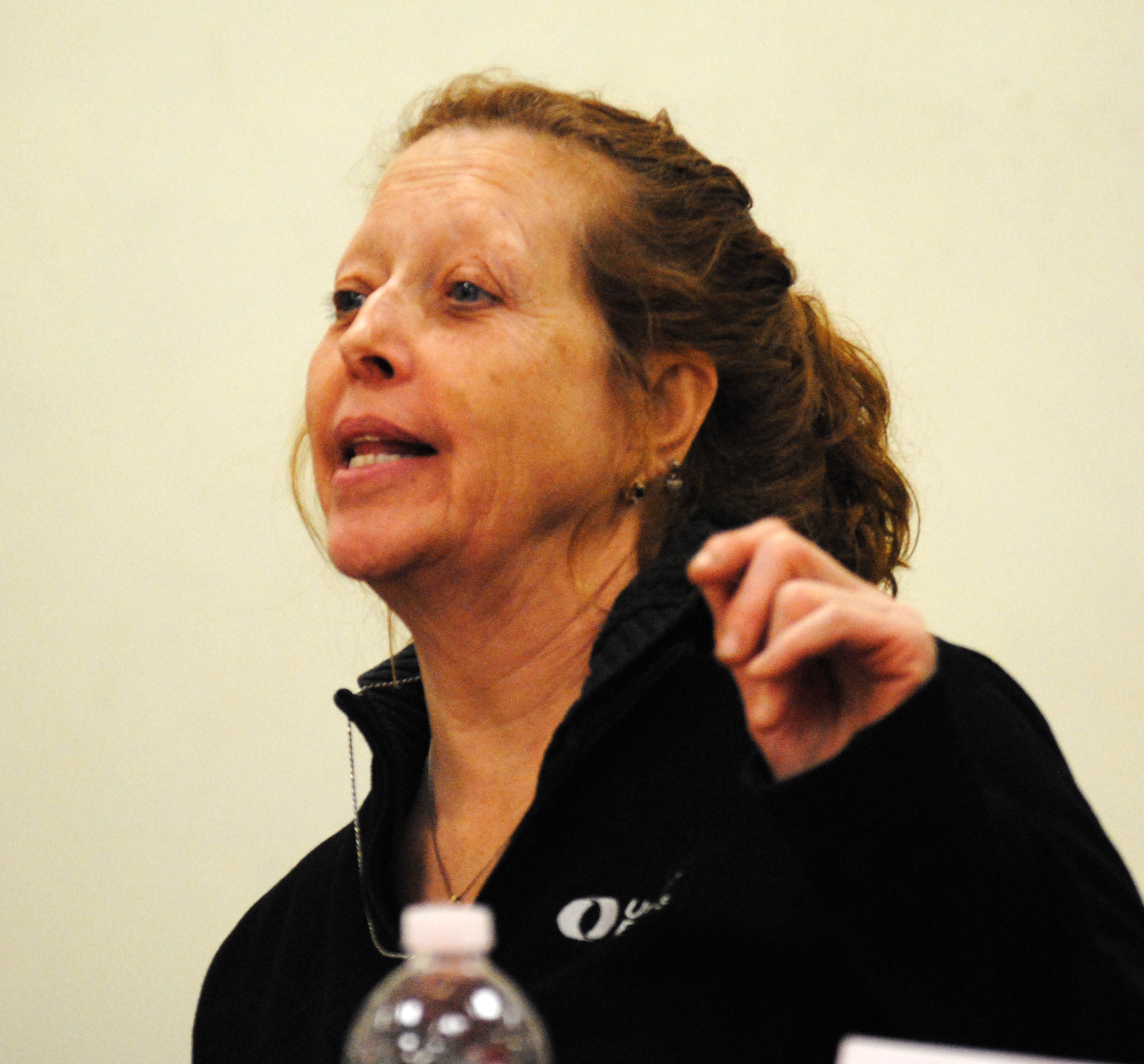

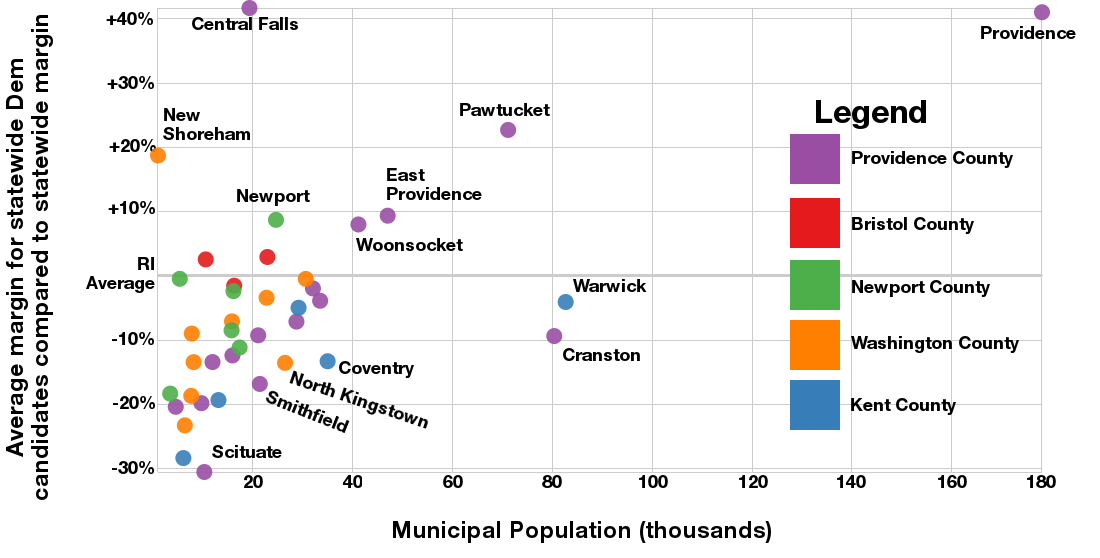
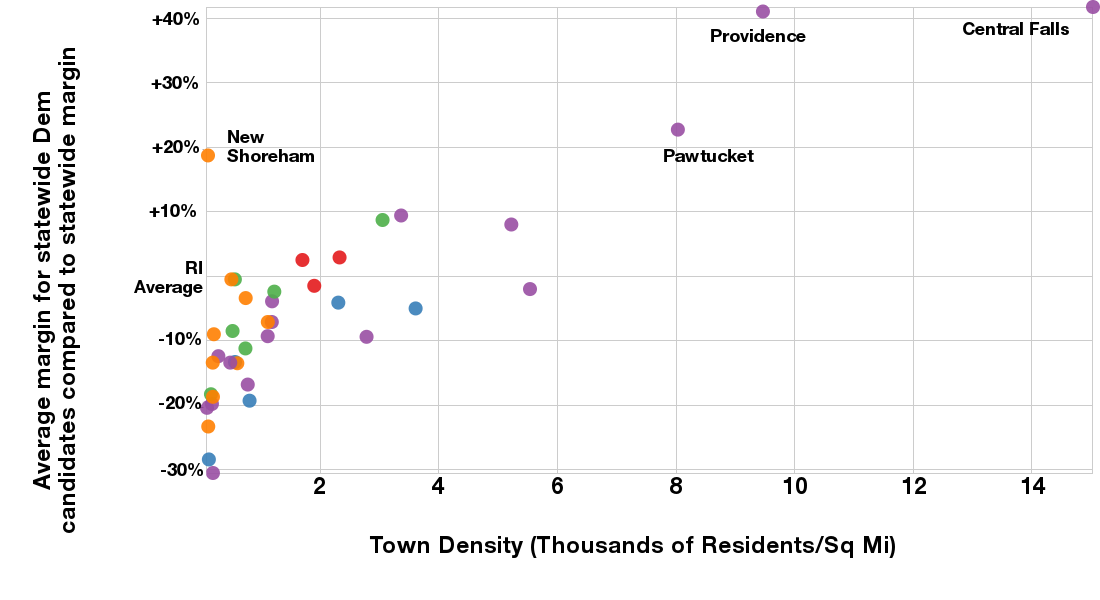
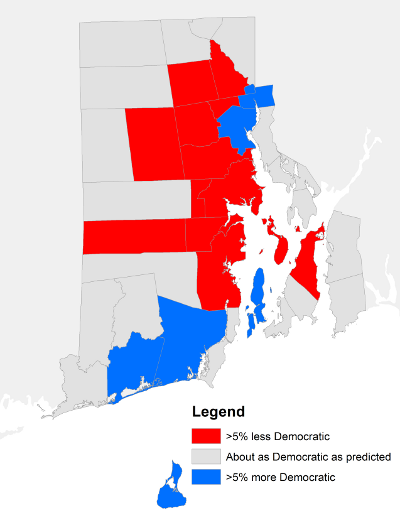
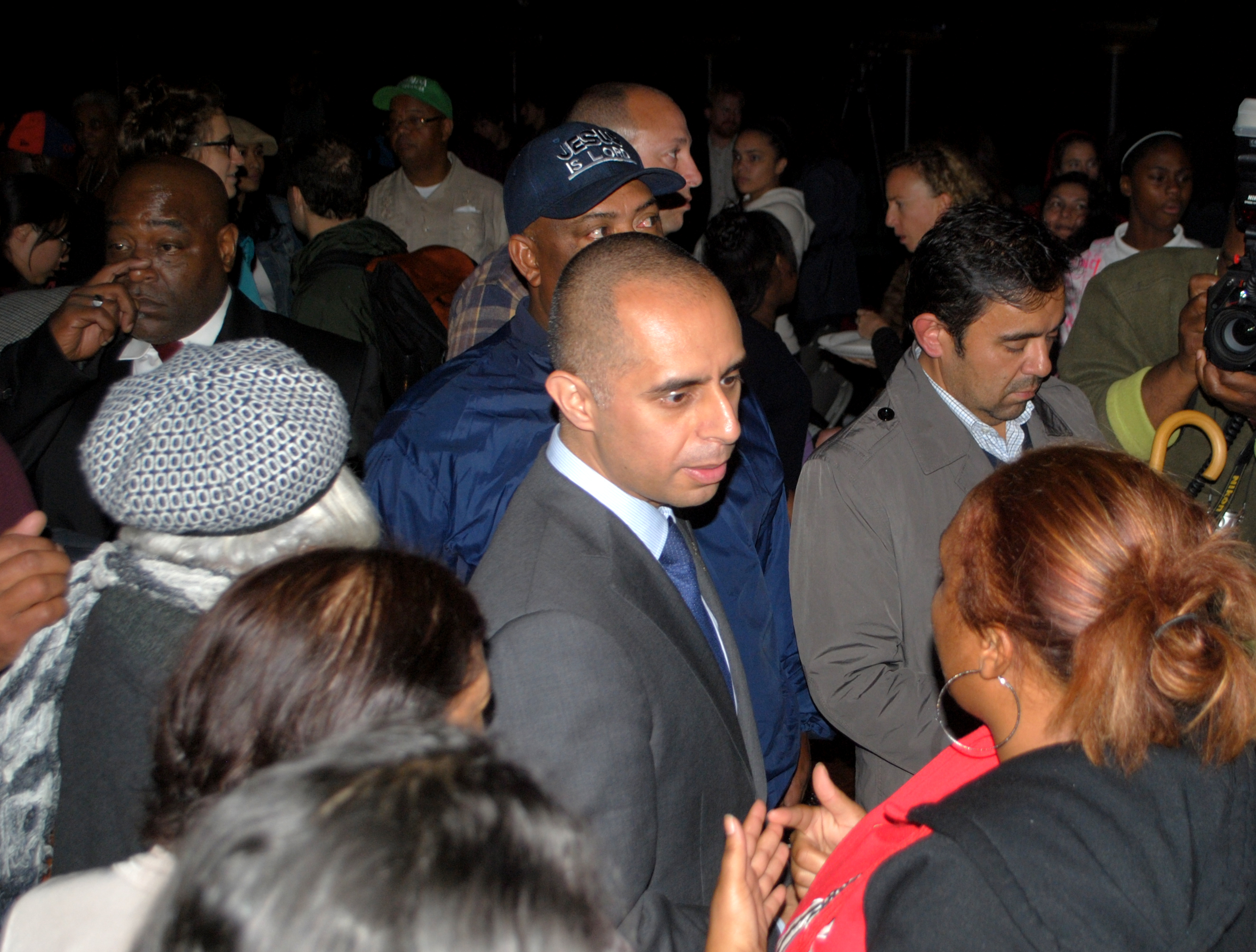
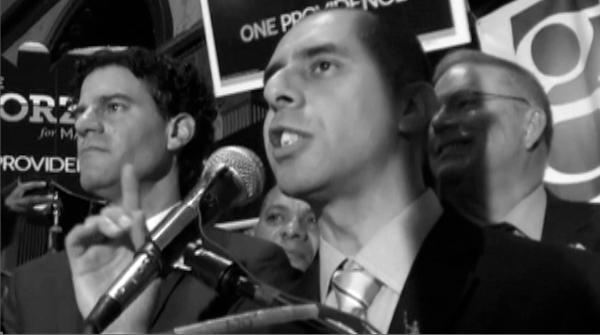 Providence Mayor-elect Jorge Elorza walked back his promise to join with advocates and demand that the General Assembly repeal the state ban on municipal minimum wage rates.
Providence Mayor-elect Jorge Elorza walked back his promise to join with advocates and demand that the General Assembly repeal the state ban on municipal minimum wage rates.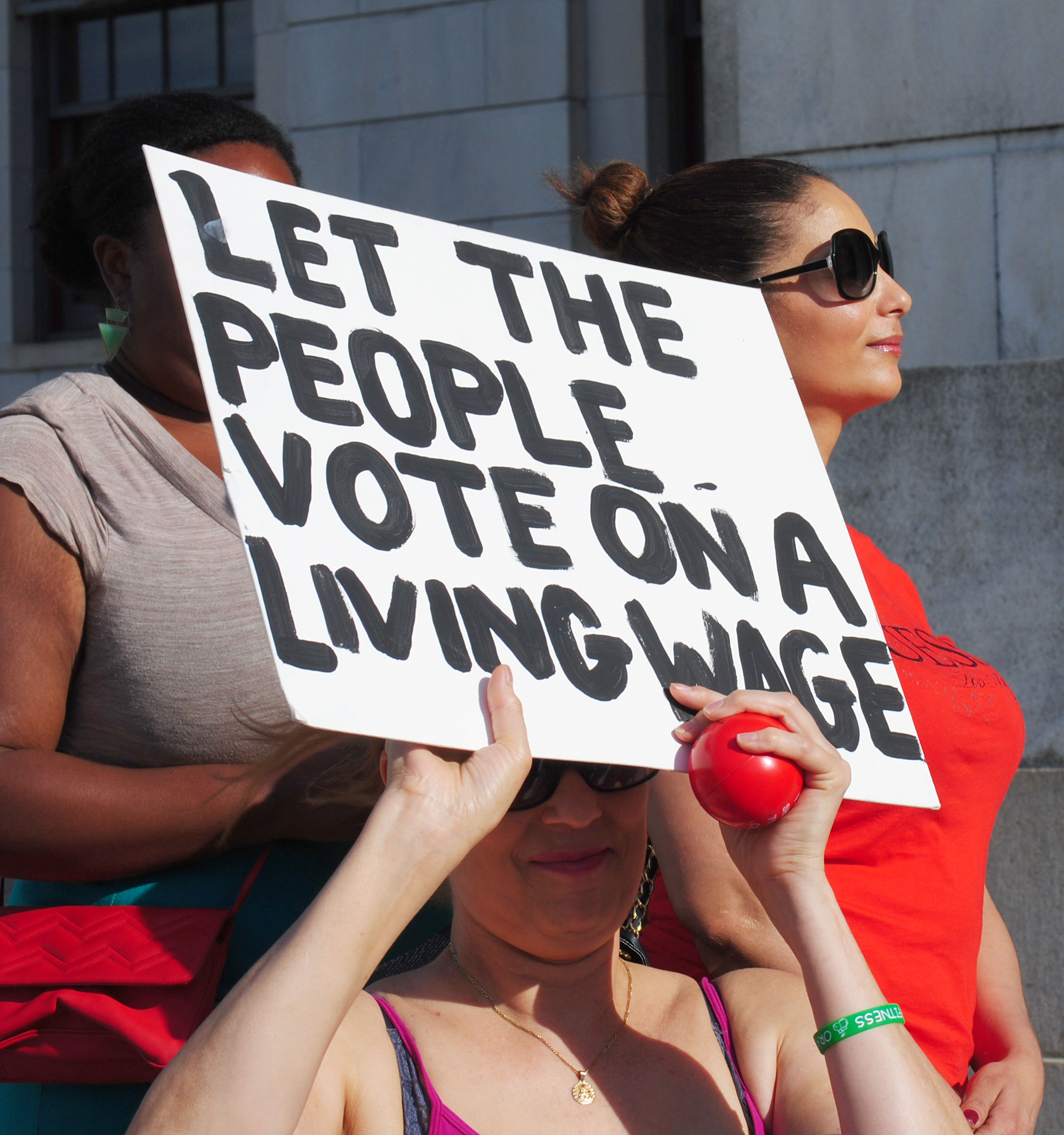
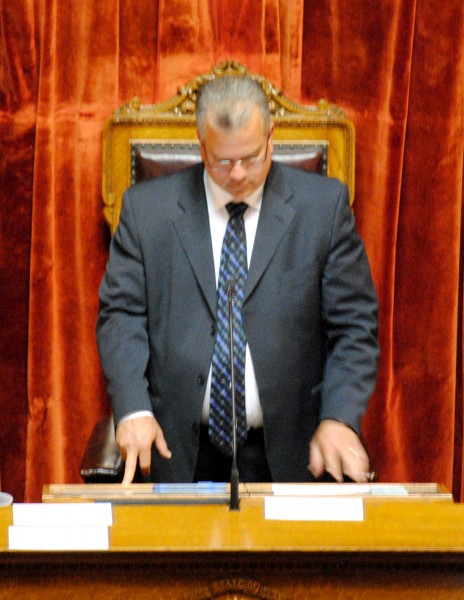
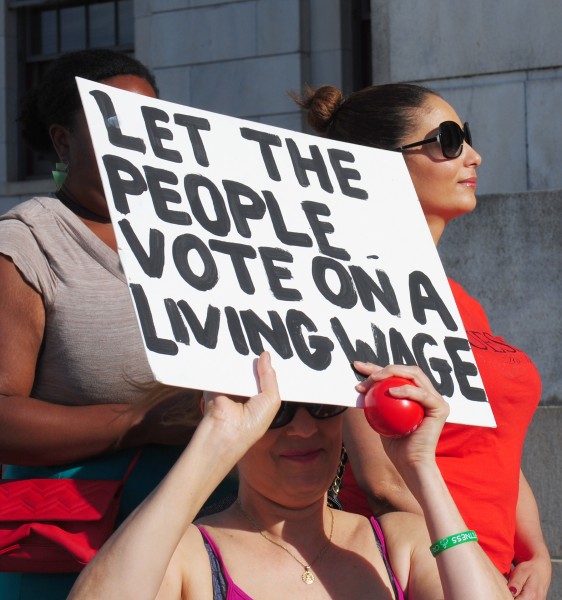 The hardworking hotel workers had successfully petitioned the city council into placing a $15 minimum wage measure onto the ballot. Citizens of Providence would have voted on that measure Tuesday, if not for the actions of the General Assembly. There is little doubt that the measure would have passed here in Providence. I mean, seriously, are voters in Alaska, Arkansas, Nebraska and South Dakota more compassionate than voters in Providence?
The hardworking hotel workers had successfully petitioned the city council into placing a $15 minimum wage measure onto the ballot. Citizens of Providence would have voted on that measure Tuesday, if not for the actions of the General Assembly. There is little doubt that the measure would have passed here in Providence. I mean, seriously, are voters in Alaska, Arkansas, Nebraska and South Dakota more compassionate than voters in Providence?
 It can’t be easy to be a new police officer in the racially and politically charged post-Ferguson era, but yesterday 53 graduates of the Providence Police Training Academy begin their careers.
It can’t be easy to be a new police officer in the racially and politically charged post-Ferguson era, but yesterday 53 graduates of the Providence Police Training Academy begin their careers.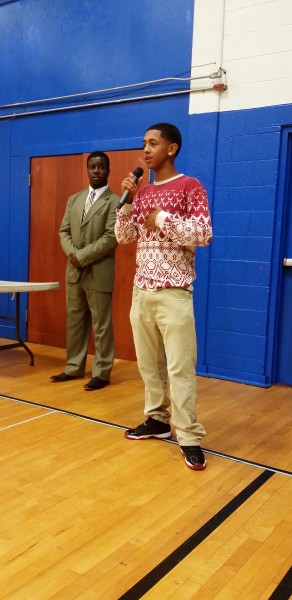 Kobi Dennis, organizer and “community guy” introduced the new police officers. “You are going to be on the street soon,” Dennis told the new recruits, then gesturing to the crowd behind him, added, “and these are the people you are going to be seeing.”
Kobi Dennis, organizer and “community guy” introduced the new police officers. “You are going to be on the street soon,” Dennis told the new recruits, then gesturing to the crowd behind him, added, “and these are the people you are going to be seeing.”